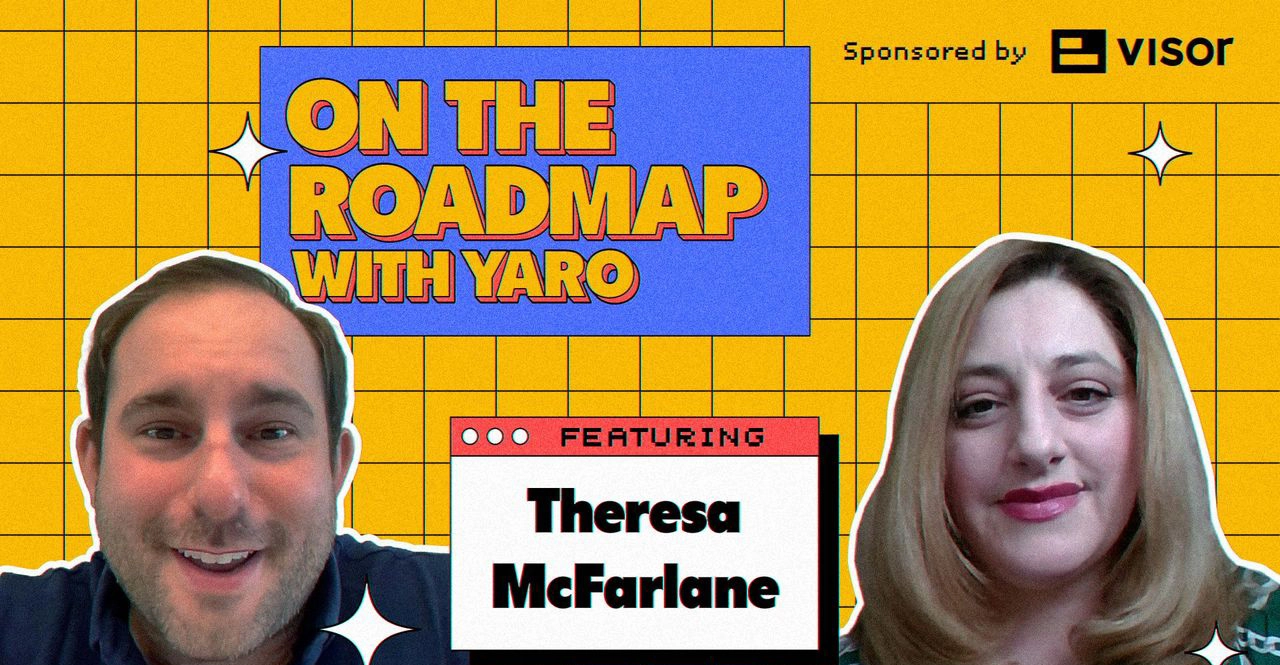
The Future of Agile Project Management: Is Agile Dead?
Has the demise of agile in project management been grossly over-exaggerated?
On one hand, agile project management tools like Jira are evolving to cater to a broader swath of teams and users, perhaps indicating that PM software doesn’t need to consider the needs of agile teams as much. Additionally, Dave Thomas, an original signer of the Agile Manifesto, even declared agile dead back in 2014.
But many teams also still use agile project planning and best practices like using sprints, standups, and other agile techniques. So, what gives? Is agile going the way of the Dodo or is it still relevant in 2025?
We decided to chat with owner of the popular LinkedIn newsletter, “The Very Agile PM,” Theresa McFarlane, to find out. Check out our conversation below or get the summary by keep scrolling.
Visor is the modern and beautiful project portfolio tool. Create Gantts, roadmaps, and reports that drive alignment with AI-Powered Templates.
The Future of Agile Project Management: Full Interview with Theresa McFarlane
Visor’s founder and CEO, Michael “Yaro” Yaroshefsky hosts our podcast, On the Roadmap. Like Domino’s delivery, each episode delivers what you want in 30 minutes or less. In lieu of pizza, we brought actionable advice from Theresa McFarlane, “The Very Agile PM,” that can elevate your career.
Mike and Theresa chatted about many topics, many of which centered around the future of agile project management.
Check out the full interview below. We also have summaries of key moments in the interview below.
Is Agile Dead? PM Expert Discusses Agile’s Future
Mike gets straight to the question that many are asking: is agile on the decline?
Theresa MacFarlane, an agile project manager, notes that agile’s entire ethos is iteration and change. With The Agile Manifesto being about 25 years old now, she notes that it would be antithetical to the core agile principals if change was not involved.
Agile has evolved these last 20+ years due to the technological advanced, like AI and automation in project management. To not take into account these changes and iterations would be opposing what agile is about.
While Theresa does note that agile has evolved, she still feels that agile and project management go hand in hand. Her hot take that she begins the show with centers around how these two disciplines, while separate, also need each other.
Theresa also calls out that teams needn’t subscribe to a rigid adherence to agile to benefit from its ethos; rather, she suggests using agile to make informed decisions.
She also points out that a lot of people made a lot of money “teaching” agile. Many people “milked contracts that taught the ‘right way’ to do agile.” This strict adherence to agile, along with agile professionals that tried to keep service contracts long after they were still delivering value, eroded trust.
Theresa also highlighted that core to agile’s ethos is people over process; teams will vary, and, therefore, so will their approach to agile. Whether you are globally dispersed or local, working in marketing or engineering, you need to figure out ways to work asynchronously.
By sticking to the core tenets, principals, and the spirit of agile, flexibility is inevitable. Avoid depending on a certain tooling or way of working strictly. Make educated and informed decisions about what works for you.
How to Keep Your Agile Skills Relevant in Today’s Job Market
If you look on LinkedIn or Reddit, you might notice posts about fewer agile postings. This is a broader trend in tech, Theresa explains, to hire engineers over Scrum Masters and other agile roles.
Theresa covers a few reasons why the agile job market is tough now:
- Management’s emphasis on the bottomline, wanting to drive more productivity
- A misunderstanding of how agile roles can help unlock productivity and sound strategy
- Agile professionals from years past who implemented bad practices, perpetuating the myth that agile roles can’t help the bottomline
Theresa also notes that all the popular 2-day “Become an Agile Professional” workshops in the last couple of decades resulted in an influx of cheap labor. When folks who got these certification didn’t actually commit to continuous learning and improve their craft, they often would implement bad practices or make a big impact on the companies they worked for. This trend ultimately hindered the value that many companies saw in agile roles.
The antidote? Continuous learning.
Theresa points out that while navigating these tough times, it’s really on agile professionals to embody the continuous learning ethos of agile. She emphasized that those who keep their skills sharp and relevant are navigating this job market far better than those who do not.
Conclusion: Agile Is Not Dead. But It Is Evolving.
From our conversation with Theresa, we extrapolated that agile is alive still. In fact, Theresa’s hot take that project management and agile are inextricably interlinked is an interesting angle. Project managers must, like the agile ethos emphasizes, value people over process. Over the course of our second season of On the Roadmap podcast, we have seen time and again that leadership in project management requires PMs having influence.
In addition, project management career growth requires that people management is at the heart of how PMs work.
AI and automation in project management can’t take on the necessary components of agile (or project management) that deal with the actual people who get projects across the line.
However, it’s not “business as usual” in the agile world. A confluence of forces are making it harder for agile professionals to get roles. Therefore, agile professionals must stay relevant by keeping their skills sharp. With more junior, recent college graduates entering the job market with certifications and many companies having had negative experiences with inexperienced (but cost-effective) agile professionals in the past, mid-to-senior level agile professionals must demonstrate what they can bring to the table.
See how AI can save you time. Check out Visor’s AI-powered templates, which can help create project backlogs and more. We have tons of agile templates, including sprint planning templates, agile roadmaps, and many others. They’re free to try!





